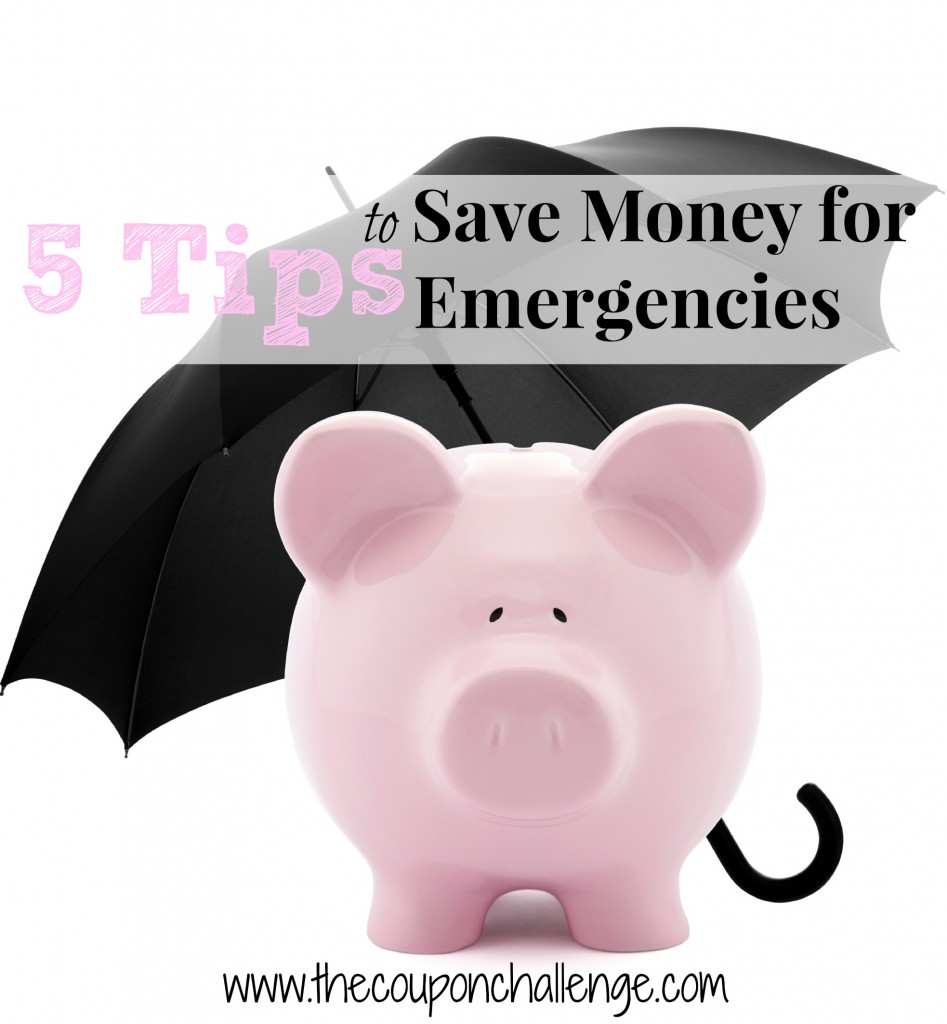{PIN IT}
One of the most important things that you have to learn financially is how to save money. Saving money on emergencies is particularly important. Most people are savvy enough to put away money for college, a new car or possibly a great vacation. Emergencies are not quite as easy because they are unpredictable.
When you lay out your budget every month, how much do you set aside for the unknown? Would you be prepared in an emergency?
5 Tips for Saving Money on Emergencies:
1. Never get too comfortable to save – Emergencies are totally unpredictable and they tend to come in batches. Some folks will go for a bit and start to feel as though their fund is big enough. They stop saving and suddenly they will have four or five emergencies in a row. This lull in saving is common and should always be avoided if you want to truly be prepared.
2. Set aside a set amount each month – Saving money on emergencies requires discipline when things are going well. As a regular part of your budget, set aside money every month for emergencies and the unexpected expenses that will no doubt show up. This amount varies depending on your budget. You should aim to build an account that could cover you for at least a year in the event of your being unable to work.
3. Be disciplined once that savings builds – It is very easy to look at that money sitting in the account and start to think of things that you could do with it. A vacation, a trip to the salon and even a new wardrobe can be very tempting when the money is not currently needed. Don’t give in to these feelings and stick to the budget.
4. Remove temptation by putting in a bank – Saving money for emergencies is not going to work if you keep the money under your mattress. Money that is in front of you tends to “find” emergencies on a regular basis. You would be amazed at the things that can become emergencies when you have the cash in reach. Put the money in a bank and never look at it other than to make sure it is accurate each month. Savings are meant to stay hidden until you need them.
5. Put leftover budget money into the emergency fund – When you set a budget each month and then end up not spending all of it in a particular category, go ahead and move that extra money into emergency savings. If you are purposefully holding onto money so that you can buy something that costs more, that is different. An extra twenty bucks in your entertainment budget this month could be easily fed into the emergency fund though.
Saving money on emergencies is really all about discipline and a commitment to preparing for the future. The comfort you will feel having that money set aside will give you confidence in your daily life. Things are not so scary out there when you have some savings set aside.
What are your tips for Saving Money on Emergencies?
Looking to start saving money with coupons? Download my FREE Simple Savings Coupon Workbook!
You might also like this inexpensive ebook for more tips: Emergency Fund 101: How to Save Money for Unexpected Expenses (Money Matters).

Leave a Reply